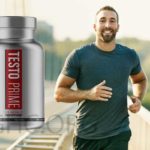If you’re looking to increase your testosterone levels naturally, there are a few foods that you should focus on eating. This article details the best foods for increasing testosterone and provide you with a list of recommended items to add to your diet. Increasing your testosterone levels can help improve your overall health and well-being, so make sure to read on for more information!

A quick introduction to what Testosterone is and what it does.
Content Table
What is Testosterone?
Testosterone is an androgenic hormone that is produced by the testes in men and ovaries in women. It is responsible for the development of male characteristics such as facial hair, deepening of the voice, and increased muscle mass. Testosterone levels typically peak in early adulthood and then decline with age. Low t-levels levels can cause a variety of health problems such as low libido, erectile dysfunction, fatigue, depression, and osteoporosis.
There are many different factors that can affect testosterone levels including stress, sleep deprivation, obesity, and certain medications. However, one of the most important things that you can do to increase your androgenic hormone levels is to focus on your diet. Eating the right foods can make a big difference when it comes to boosting your T levels.
Related:

Testoprime: If you are over 30 and feel and need to replace lost muscle mass, energy or sexual prowess then this is the supplement for you. Similarly, if you are a body builder and need a T-Booster supplement to help build muscle and strength then this is also for you.
Top Testosterone Boosting Foods to Raise T levels
If you’re looking to boost your low T levels, you may be wondering what foods can help. While there is no magic cure-all, there are several foods that have been shown to be beneficial for boosting t-levels. Here’s a round-up of the most beneficial foods to eat to increase low testosterone levels:
Eggs
Eggs are an excellent source of protein and essential amino acids, which are the building blocks of testosterone. In addition, eggs contain important nutrients such as vitamin D, zinc, and magnesium, which are all necessary for proper androgen production. Furthermore, eggs are one of the few food sources of cholesterol, which is a precursor to testosterone.
For these reasons, eggs are an important part of any diet designed to increase testosterone levels naturally. Studies have shown that eating as few as three eggs per day can significantly increase testosterone levels in men. So if you’re looking to boost your T levels, make sure to include eggs in your diet.
Zinc
zinc is arguably the most important for natural increasing male hormones. Zinc works by unblocking zinc finger receptors which down-regulate testosterone production. Zinc also helps to increase luteinizing hormone, which signals the testes to produce more testosterone.
How much zinc you need will depend on your diet and lifestyle – zinc needs vary from person to person, but a good rule of thumb is to take zinc supplement every day. You can get zinc from food such as oysters, beef, and pumpkin seeds, or from supplements.If you are not getting enough zinc from your diet, taking a zinc supplement can help to increase your testosterone levels.
Avocados
Avocados are also a great source of zinc – essential for male hormone production. In fact, zinc deficiency is one of the most common causes of low testosterone levels. Just three ounces of avocado contains nearly 20% of the daily recommended intake of zinc. Additionally, avocados are a good source of healthy fats.
Testosterone is a lipid-based hormone, so having adequate levels of healthy fats is essential for maintaining optimal male hormone levels. Avocados are also rich in antioxidants, which can help to protect against oxidative stress, another common cause of low androgen. To enjoy the benefits of avocados for testosterone production, aim to eat two to three per week.
Shellfish
Shellfish also contain high levels of zinc, which again, is essential for the production of testosterone. Zinc deficiency is one of the most common causes of low testosterone levels. Shellfish are also high in protein and low in fat, making them an ideal food for people trying to increase their level of male hormone production.
How many shellfish you need to eat will depend on your zinc levels, but most experts recommend eating at least three ounces of shellfish per week. oysters, clams, and crabs are all good sources of zinc and can help you boost your testosterone levels naturally.
Leafy Greens
Leafy greens like spinach and kale are good for testosterone boosting because they contain a variety of nutrients that are essential for hormone production. For example, leafy greens are a good source of magnesium, which is necessary for the conversion of androgen to its active form. In addition, leafy greens are a good source of vitamins A, C, and E, which are all important for maintaining healthy testosterone levels.
Furthermore, leafy greens contain antioxidants that help to protect the body’s cells from damage. This is important because damage to cells can lead to the production of unhealthy levels of testosterone. Finally, leafy greens help to regulate blood sugar levels. This is important because spikes in blood sugar can lead to the production of unhealthy levels of testosterone.
Pomegranates
Pomegranates are not just delicious – they can also be beneficial for your health. Pomegranates contain high levels of antioxidants, which can help to protect against cell damage. They also have anti-inflammatory properties, which can help to reduce swelling and pain. Additionally, pomegranates can help to raise male hormones.
Testosterone is a hormone that is essential for sexual function and muscle growth. Low testosterone levels can lead to reduced sex drive, fatigue, and muscle loss. Pomegranates can also help to improve heart health. They can help to reduce blood pressure and cholesterol levels, and they may also help to prevent blood clots. Additionally, pomegranates can help to reduce stress levels. The antioxidants in pomegranates can help to protect the body from the damaging effects of stress.
To enjoy the benefits of pomegranates for testosterone production, aim to eat one to two per day. You can eat them whole, or you can drink pomegranate juice. If you are taking a pomegranate supplement, be sure to take it with food.
Fortified Plant Milk
Fortified plant milk is often touted as a healthy alternative to cow’s milk, but a new study suggests that it may have an unexpected side effect: raising androgenic hormones. The study, which was conducted on rats, found that those who consumed fortified plant milk had significantly higher testosterone levels than those who did not. Fortified plant milk is typically made with added vitamins and minerals, including vitamin D.
While vitamin D is essential for many bodily functions, it can also increase T production. The study’s authors suggest that the increased testosterone levels in rats that consumed fortified plant milk may be due to the high vitamin D content. While more research is needed to confirm these findings in humans, the study’s authors say that the results “raise concerns” about the potential side effects of fortified plant milk.
Fatty Fish
Fatty fish and fish oil can do wonders for your testosterone levels. fatty fish like salmon, mackerel, and tuna are packed with omega-3 fatty acids, which have been shown to increase testosterone levels.
Fish oil supplements are also a great way to get omega-3 fatty acids into your diet. In one study, men who took a fish oil supplement for 12 weeks saw their androgenic hormones increase by up to 20%. If you’re looking for a natural way to boost your levels male hormones, fatty fish and fish oil are a great place to start.
Onions
Onions are more than just a flavorful addition to your meal. They can also help increase your androgenic hormones. Testosterone is the male hormone responsible for muscle growth, strength, and libido. While onions won’t turn you into the Hulk, they can help give your testosterone levels a boost.
So how many onions should you eat? And when is the best time to eat them? For maximum benefit, aim for about 2-3 onions per day. You can eat them raw, cooked, or in supplement form. If you’re taking onions in supplement form, it’s best to take them with a meal. As for when to eat onions, there isn’t necessarily a “best” time. Just make sure you’re getting enough onions in your diet to see the benefits.
Cocoa
Cocoa is a key ingredient in chocolate, and it has been touted for its health benefits. Cocoa contains flavonoids, which are plant-based compounds that have antioxidant properties. Cocoa has also been linked to improved heart health, cognitive function, and blood sugar control. One potential benefit of cocoa is that it may help to increase testosterone levels. Testosterone is a hormone that plays a role in muscle growth, bone density, and sex drive. A few small studies have found that cocoa may help to increase androgen in men, but more research is needed. Cocoa is generally safe to consume in moderation, but it is important to remember that chocolate also contains sugar and fat. Therefore, it is best to enjoy cocoa in its natural form.
Best Foods for Increasing Testosterone Conclusion
There you have it, the best foods for increasing testosterone. Incorporate these into your diet and you’ll be on your way to boosting your testosterone levels. Remember, a healthy diet is just one part of the equation. To really see the benefits of increased androgenic hormones, you’ll need to exercise regularly and get enough sleep. But with a little effort, you can make a big difference in your testosterone levels.
Related Content:
- 1-androsterone – a chemical that is found in the body and may be changed to other chemicals, such as testosterone. It’s not known how safe or unsafe 1-androsterone is for your health.
- D-Aspartic Acid (D-AA) is a form of an amino acid – Aspartic Acid. The other form is known as L-aspartate, but D-AA has unique properties.
- Does zinc increase testosterone levels. Is it possible to get enough from your diet to raise T levels or should you take a zinc supplement.
